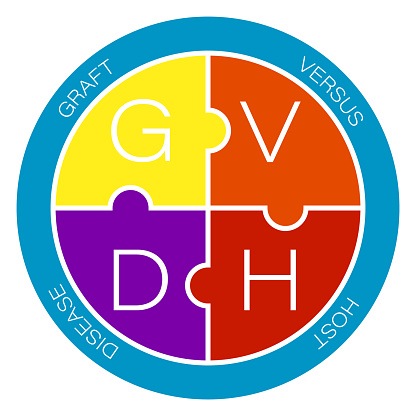
Clinically significant graft-versus-host disease (CSGVHD) in children is associated with considerably reduced survival, according to a study presented at the 2021 TCT Meetings of ASTCT & CIBMTR Digital Experience.
This study comprised 210 children undergoing first hematopoietic cell transplant (HCT) for non-malignant disorders in Florida between 2010 and 2019. The most common diagnoses included severe aplastic anemia (23%), sickle cell disease (24%), primary immunodeficiencies (27%), bone-marrow failures (10%), and thalassemia (10.5%). In the population of interest, 207 patients were evaluable for GVHD, and 25 of them developed CSGVHD. The investigators further noted that of 23 patients with extensive chronic GVHD, 13 were without previous acute GVHD (aGVHD) or only had grade I or II aGVHD.
Overall, according to the results, 12% of children undergoing HCT for non-malignant disorders developed CSGVHD; this was reported as the primary cause of death in only 10% of deceased patients. However, the investigators wrote that the “development presence of CSFVHD was associated with significantly lower overall survival. Use of mismatched unrelated donors, but not mismatched related donors was related to a significantly higher risk of CSGVHD.”
Read more at: https://tct.confex.com/tct/2021/meetingapp.cgi/Paper/17454
Horn B, et al. Risk of Clinically Significant Graft-Versus-Host Disease (CSGVHD) in Children Receiving Allogeneic Hematopoietic Cell Transplant (HCT) for Non-Malignant Disorders in Florida (2010-2019). Published for the 2021 TCT Meetings of ASTCT & CIBMTR Digital Experience; February 8-12, 2021.







 © 2025 Mashup Media, LLC, a Formedics Property. All Rights Reserved.
© 2025 Mashup Media, LLC, a Formedics Property. All Rights Reserved.